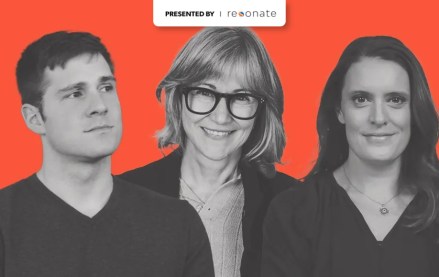
Some of Europe’s leading brands, agencies and publishers have come together at Digiday’s Programmatic Summit in Rome this week to thrash out the latest pressure points in programmatic advertising. We caught up with a few of them to ask what the biggest barriers to further investment in programatic. Here are their answers, lightly edited for clarity:
Ben Johnson, global media director, Unilever
The term “programmatic” is imprecise. It would be a lot simpler to explain if everything was bucketed under their relevant disciplines, such as real time, contextual data targeting or CRM brand building — how marketers talk. Secondly, brands and agencies need to understand what data is important and why and what the new brand narrative needs to be and why.
Johan Ydring, head of media and analytics, TUI Nordic
Brand awareness and brand preference are vital marketing goals for us. The only way I would move money out of branding and into programmatic would be if the metrics can prove it has the same effect in terms of meeting those branding objectives, which currently it doesn’t.
David Harling, former group digital marketing director, MoneySupermarket
Advertisers need to understand their first-party data. It can unlock programmatic advertising for advertisers, but also hold them back if they don’t understand it.
Oscar Garza, global director of programatic, Essence
With programmatic, I want exclusive access to inventory and data I can’t get anywhere else, because when buying an impression in an auction, he who has the most exclusive knowledge on the value of that impression wins. I want publishers to give me data that is relevant to my client. But agencies, advertisers and publishers aren’t speaking the same language. Typically the client asks for the full menu of the publisher’s data and the publisher won’t provide it, perhaps because they are afraid to be wrong in saying what that data should be.
Richard Wheaton, chief executive, EAME, Neo@Ogilvy
The issue is the industry over-promising what can be achieved. This means client expectations are high and they are often disappointed. The word programmatic is also unhelpful, because it sounds like it’s just automation, when the best work isn’t automated. Computers are good at choosing between two variables; they’re not good at choosing between 20 variables when there is creative involved.
More in Media

Digiday+ Research: Publishers take their focus off events as revenue dips
The percentage of publishers making money from events hit a low as of the first quarter of this year and, as a result, fewer publishers plan on putting a focus on growing that part of their business.

What platforms, brands and agencies hope to get out of the Possible conference in year 2
Year two of Possible is once again being held in Miami Beach, and it will take place from April 15-17 with 3,000 attendees expected to listen to another 200 or so speakers, including Snap’s Colleen DeCourcy, Uber Ads’ Megan Ramm and UM Worldwide’s Matthew Smith.

AI Briefing: Cloud giants’ AI ambitions create new partnerships — and new competitive concerns
Last week, tech companies like Google, Microsoft and Amazon all announced updates more updates for their cloud and AI efforts





